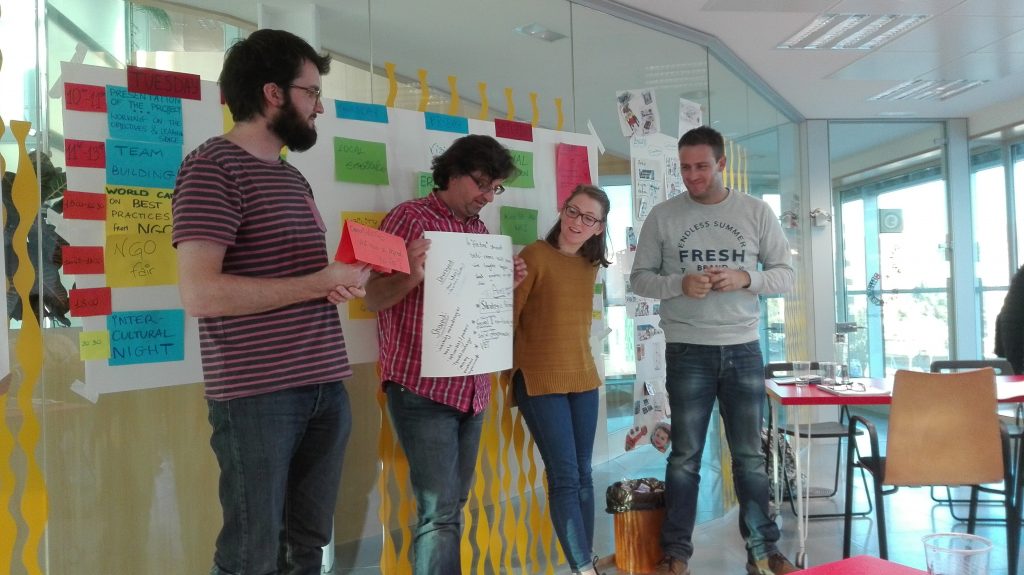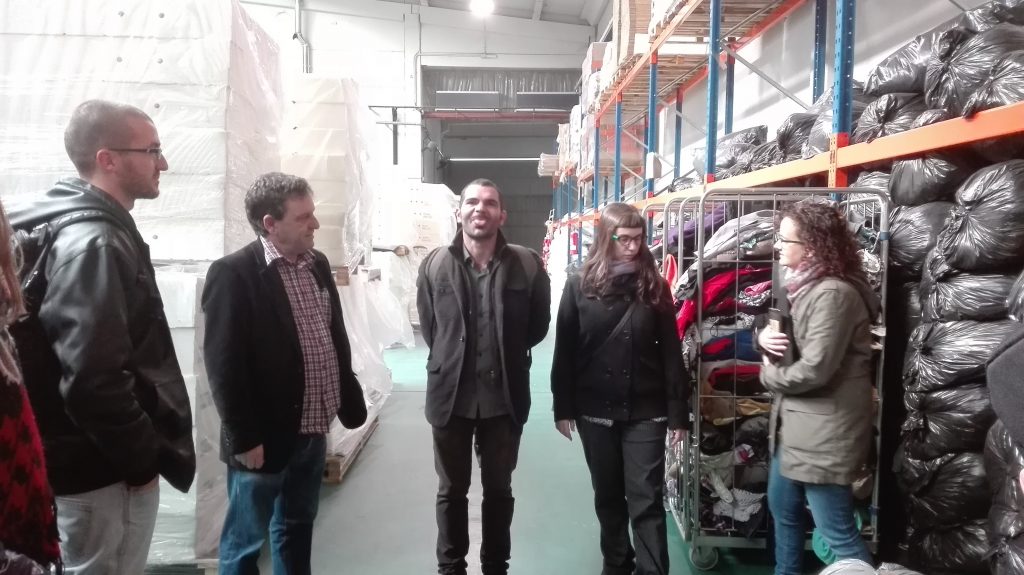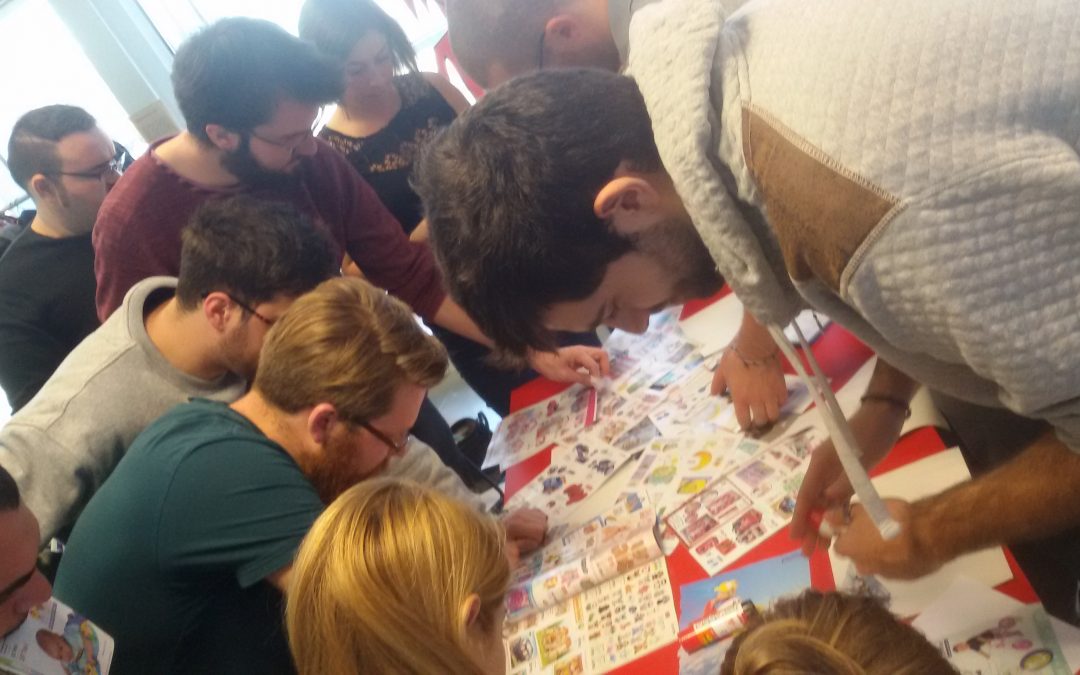NEET in VET was the third seminar training of Opportuneeties, which took place in Zaragoza (Spain). The aim of the training was to analyse the different methods used in Europe regarding the inclusion of NEETs (Not in Education, Employment or Training) in the frame of Vocational Education and Training) as well as learn from the experience of Mundus in the field of mobility.
Twelve participants from the four participant countries (France, Italy, Germany and Spain) met in Zaragoza, where Asociación Mundus hosted the training from the 13th to the 19th November 2017. Mundus is based there, as well as in Barcelona and Girona, where it mainly develops Erasmus+ VET projects, hosting students in Vocational Education and Training from all over Europe to carry out working placements to foster and increase their employability in a globalised Europe.
The main goal of this mobility was to share the different approaches used in each country, and to gather new resources for NEETs, especially in the vocational training and the mobility field. The activities on the first day consisted on getting to know each other, with some team building dynamics and ice breakers. Once the group felt comfortable, we were ready to approach the topic of the training.
Through non-formal educational methods we talked and debated about NEETs and their needs. The conclusion was that the problem surrounding young people who are outside the system (both the educational and the labour) is common in most European countries, despite having a very different economical and social landscape in each region.

Part of the training focused in Mundus work because, the Spanish association has experience in this field. Desiree and Sara, the trainers who led the training, went through the projects were Mundus involves NEETs and youth with fewer opportunities at risk of becoming NEETs. The main one is Erasmus+ VET, which in the way that is developed by Mundus becomes an opportunity for young people at risk to abandon the formal system of education or work to participate in European mobilities to strengthen their competences, empower them and promote an active citizenship within Europe. We also went through a Youth Guarantee project managed currently by Mundus funded by the European Social Fund, called TLN. This programme gives the opportunity to NEETs to do an internship abroad the increase their employability through gaining experience and internationalise their profile. The partner organizations who have less experience in European mobility projects valued very much this part of the training.
According to one of the participants, Paula Lázaro: “It was really interesting to learn about new opportunities for young people and how to develop them”.
A second part of the training focused on visits to organisations involved in the inclusion of young NEETs. We visited a social company which gathers used clothes and re-sells them; we had the opportunity to meet a couple of students from Poland who where doing their internship in a cafe with an Erasmus+ grant through Mundus. We also visited a centre which offers education to young people at risk. The three visits where fruitful and very interesting to get to know.

Finally, the last part consisted on sharing ideas, resources and methods to be used under the European frame. There was a brainstorming about the different programs which can be use for mobility of NEET, at European level but also implemented by each state: your first EURES job, EVS, Eurodesk support to career, Service Civique, FSJ, Servizio Civile Internazionale etc. Sara, one of the trainers, stated: “The experience helped us to see how NEETs are a common European problem and we shared our thoughts and ideas to help them have more opportunities in the future”.


Recent Comments